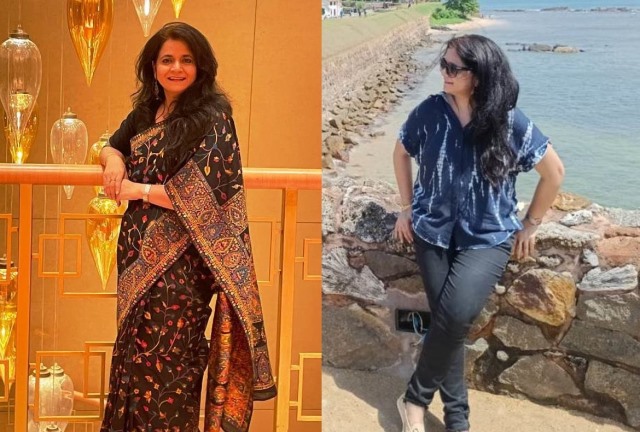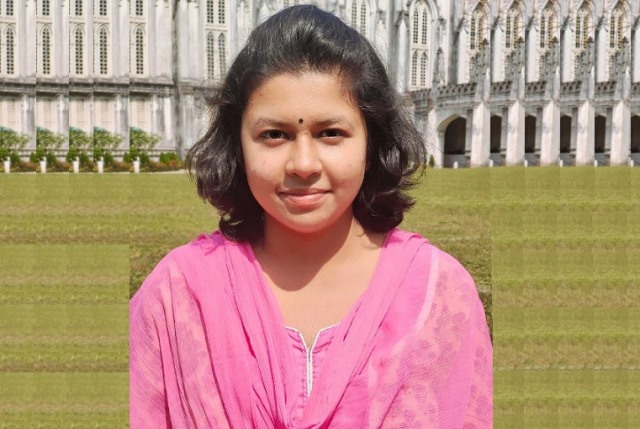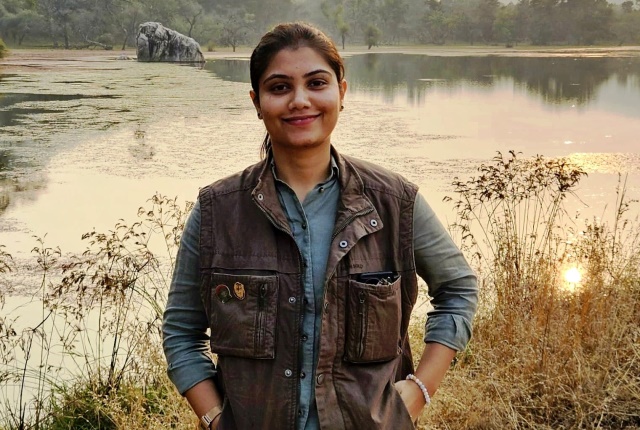
‘Can Lakshadweep Ecosystem Handle Unruly Domestic Tourists?’
Saimi Sattar, a travel writer-editor who is currently working in the hospitality sector, says unregulated tourism can sound the death knell of fragile coastal ecosystem. Her views:
Lakshadweep has been on my bucket list for quite some time. As it always happens, whenever we travel to pristine places, there is always this sense of trepidation that once it is exposed to tourism, its beauty will be compromised. Kashmir is one example. The unbridled tourism that the current Union Territory witnessed last year was evident in the mounds of plastic bags and bottles that were dumped everywhere — even in a location as remote as Sonmarg! It is as if people want to leave a footprint behind, however ugly. And this seems to be especially true of the travellers from the sub-continent.
Tourism is always accompanied by an increase in the demand for energy, waste generation and vehicular traffic. Add to it the top-heavy commercialization – and this is where my worry lies. A heavy influx of tourists will inevitably spell a disaster for a place that is as eco-sensitive as Lakshadweep. For, the truth is that unregulated tourism can sound the death knell of the local ecosystem.
The blueprint for sustainable development in a coastal island would include: a robust sewage system, smaller hotels that leave a lessor carbon footprint, eco-friendly transport and proper waste management. However, it seems that we do not have time for that. Nor do we seem to have an understanding or intention to preserve the ecology.
As for the recent hyper-nationalism we witnessed regarding Lakshadweep and the Maldives, aren’t these predictable given the rise of the Right-wing in many parts of the world? Mohamed Muizzu won the election in Maldives with the slogan of ‘India Out’. From there it was just an obvious step whereby his ministers abused the Indian prime minister.
Thereafter, it was only a matter of time before Indian social media warriors retaliated with predictable aggression. Since India is the biggest country in the subcontinent, we have been flexing our muscles, especially after we became legitimate guests at the high table with the western and so-called ‘civilised’ nations. No wonder, the smaller countries see us as a bully in the playground.
ALSO READ: ‘Saving Hills From Tourist Influx Is Shared Responsibility’
The most incredulous thing is that sometimes it seems that our foreign policy is being led by the social media! Over the years we have seen that foreign policy is discussed, the long-term repercussions assessed, and a policy is framed taking into account the geo-political situation in the neighbourhood. Being reactive is equivalent to being juvenile. The battles on Twitter should be restricted to the platform and not spill over to real life — which is what has happened here.
On a lighter note, till December 2022, only 7.2 per cent of Indians had passports. So of all those outraging on social media, how many would actually have travelled to the Maldives is anyone’s guess.
As for relations with our neighbours, it is transparent that age-old ties have turned frosty with each of them in recent times: Bangladesh, Sri Lanka, Nepal, and now the Maldives. The relations with various Pakistani regimes were always unstable but never have they been at such an all-time low. It is sad. There are so many shared cross-cultural connections — in terms of what we wear, the food we eat, the festivals we celebrate, architecture, music, poetry, literature — the list is endless. But all of us prefer to butt heads rather than script a cohesive future.
It is not as if each of these countries do not have its problems; poverty, income disparity, lack of education, violence, communalism — our glasses are full to the brim. All of us are unitedly rank low on human indices. The way forward would have been to overcome this through cross-border solutions. But rhetoric wins elections. Not sensibility. And that seems true for many nations these days.
I have the fondest memories of travelling to Pakistan as a student. My father’s only sister lived in Karachi. The abundance of love that strangers showered on me during my visits, because I was an Indian, was heartening. That is a privilege exclusively reserved for Indians. Cab drivers did not accept money, shopkeepers did not charge us for stuff, and customs officers made sure that we were not harassed by their underlings. The list goes on.
I had returned the last time with the promise to my uncle that I would visit Mohenjo-Daro and Harappa next. Sadly, my uncle passed away more than 10 years ago. With our relations with Pakistan being what they are and the difficulties in getting a visa, I wonder if I will ever visit the country where the people are our mirror image. It is a tragedy.
The narrator has been the editor of Exotica, a luxury travel and lifestyle magazine
As told to Amit Sengupta
For more details visit us: https://lokmarg.com/



